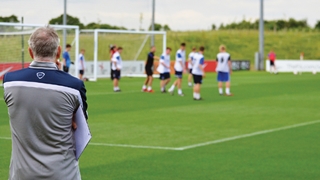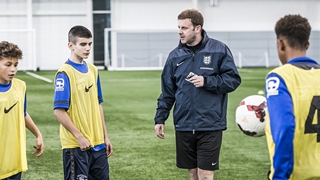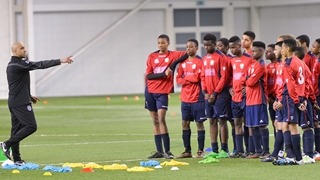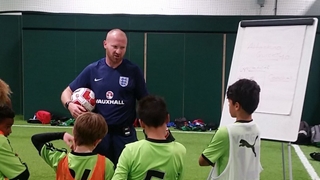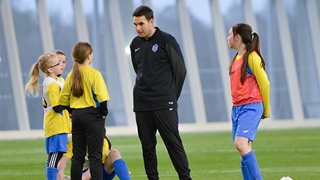
How coaches interact with players before, during and after training sessions and games is crucial to the learning process.
In this article, FA youth coach developer, Richard Horner, shares his top-tips to help you improve your communication skills with players.
1) Understand your own communication bias
Coaches quite often intervene through the spoken word – but routinely this is a reflection of the communication bias of the coach. There may be better ways to engage with an individual player. Some players may not want the coach to say anything to them that week – which may be a problem for the coach if their bias is only to use the spoken word.
2) A responsibility for communication
If coaches can get to know the players better they can start to plan more effectively and rather than being reactive in their communication they can be more responsible. Being more responsible means considering how we are going to communicate with each individual as part of what we plan to do at training and on match day.
3) Receiver first
The receiver is key when planning communication. It might be as simple as recognising that if one of the players has a short attention span that you tailor what you say to link to the players' preference. The most important person in the process is the person receiving the information. If they’re not ready yet to receive it, then the coach needs to know that.
Culturally, match day is seen as the ‘end’ of the week and the moment where the coach is under the spotlight. As such, it regularly leads to a change in behaviour.
However, if we reframe the week and see the game in the middle of the coaching week then coaching behaviours may become more consistent. If the game is at the weekend then the development week could start on a Wednesday and finish on a Tuesday – creating the opportunity for a reflective process.
5) Understanding the player experience
Often match day is a melee for the players with confusing moments for individuals who are trying to solve problems. Match actions happen within a moment of a second and then the kids are onto another decision-making process. Games move very quickly and the decisions flip-flop instantaneously – all we are asking coaches to do is recognise it, observe it and consider what type of communication is appropriate for such a dynamic scenario.
6) Pause and think
Before communicating it is crucial to consider what you are going to say. It might just be that you wait, clear your mind, and then go in and speak with the players. The pause becomes quite important. If you can create time for yourself, you can ensure you are consistent and clear in what you are going to say. If communication becomes ad hoc, coaches can lose those consistent messages.
7) Develop a team script
For politicians there are regular keynote meetings to ensure everybody understands specific key messages. It helps to develop a consistency in what is being said and creates a framework for everybody to work from. Key individuals will also be given scripts to follow. In a similar way, if a club has a philosophy and some key headlines within that they can start to plan to use some of these words in training and on match day.
8) Consistency of communication
For communication to have an impact on development there has to be consistency over a period of time – rather than just a one off event. The language, ideas and challenges should build and build.
9) Make the players feel good about themselves
In golf, the caddy and the golfer have a relationship which is both strong and loose depending on the needs of the moment. If the caddy steps in at the wrong time the relationship with the golfer is challenged. The golfer doesn’t need technical and tactical information but may need help on managing their emotions. For the caddy it is a case of: when is it appropriate to say something and when to leave them alone? Subtle skills that will make them feel good about themselves are hugely important.


